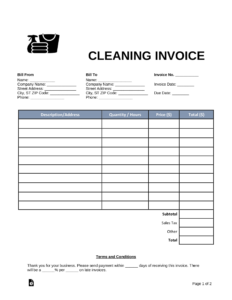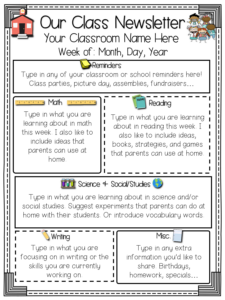As a member of Toastmasters International, you have the opportunity to develop essential communication and leadership skills through various activities and exercises. One of the most valuable components of the Toastmasters experience is the evaluation process, which allows members to receive feedback and improve their speaking abilities. The Toastmasters evaluator form plays a crucial role in this process, providing a structured framework for delivering evaluations. In this article, we will explore the purpose and importance of the evaluator form, its key components, and how to effectively utilize it for providing constructive feedback.
1. Understanding the Importance of Evaluations in Toastmasters
Evaluations are at the heart of the Toastmasters experience. They provide a supportive and constructive environment for members to grow and improve their public speaking skills. By receiving feedback from fellow Toastmasters, individuals can identify their strengths and areas for improvement, ultimately enhancing their abilities as communicators and leaders.
Effective evaluations not only benefit the speaker but also the evaluator. They help develop critical listening and analytical skills, as well as the ability to provide constructive feedback in a positive and encouraging manner. Thus, evaluations are a two-way street, allowing both the speaker and evaluator to grow and learn from each other.
2. The Purpose and Benefits of the Toastmasters Evaluator Form
The Toastmasters evaluator form serves as a structured tool to guide evaluators in delivering a comprehensive assessment of a speech. It ensures that all important aspects of a presentation are covered, allowing for a well-rounded evaluation. The form also provides a standardized framework for consistency in evaluations across different sessions and clubs.
Using the evaluator form offers several benefits:
- Structure: The form provides a clear structure, ensuring that all relevant aspects of the speech are evaluated, including content, delivery, and overall effectiveness.
- Focus: It helps evaluators stay organized and focused during the evaluation process, ensuring that key areas are addressed without omitting any important details.
- Consistency: The form promotes consistency in evaluations across different speakers, helping to maintain fairness and equal opportunity for growth.
- Efficiency: By following a standardized form, evaluators can provide feedback more efficiently, saving time and ensuring that evaluations are delivered within the allocated time frame.
3. Key Components of the Toastmasters Evaluator Form
The Toastmasters evaluator form consists of several key sections that cover different aspects of the speech being evaluated. Let’s explore each component in detail:
3.1. Speaker Information
This section captures essential details about the speaker, including their name, speech title, project number, and objectives. It is important to accurately record this information to ensure proper tracking of the speaker’s progress and to provide specific feedback tailored to their speech objectives.
3.2. Speech Introduction
Here, the evaluator provides an overview of the speech, summarizing the key points and main ideas presented by the speaker. This section helps set the context for the evaluation and provides an opportunity for the evaluator to demonstrate active listening skills.
3.3. Speech Content
The content section focuses on the organization and effectiveness of the speech. The evaluator assesses the clarity and logical flow of ideas, the use of supporting evidence, and the overall impact of the message. Constructive feedback is provided to help the speaker improve the structure and persuasiveness of their speech.
3.4. Speech Delivery
In this section, the evaluator focuses on the speaker’s delivery skills, including vocal variety, body language, eye contact, and the effective use of visual aids. The purpose is to provide feedback on how the speaker engages and connects with the audience, as well as to suggest improvements for more impactful delivery.
3.5. Speech Conclusion
The conclusion section allows the evaluator to summarize the key takeaways from the speech and provide an overall assessment of its effectiveness. It is an opportunity to reinforce the speaker’s strengths and offer specific suggestions for improvement.
3.6. Recommendations
In this section, the evaluator provides recommendations for the speaker’s future development. This may include suggestions for additional projects or areas of focus that would contribute to the speaker’s growth within the Toastmasters program. Recommendations should be specific, actionable, and tailored to the speaker’s individual needs.
3.7. Evaluator’s Signature
The evaluator’s signature signifies that the evaluation has been completed and serves as a form of accountability for both the evaluator and the speaker. It also allows for easy tracking and record-keeping within the Toastmasters club.
4. Tips for Effective Evaluation Using the Toastmasters Evaluator Form
While the evaluator form provides a structured framework, it is important to remember that effective evaluations go beyond simply filling out a form. Here are some tips to enhance the quality and impact of your evaluations:
- Active Listening: Pay close attention to the speaker’s content and delivery, demonstrating active listening skills. This will allow you to provide specific and relevant feedback.
- Focus on Strengths: Begin your evaluation by highlighting the speaker’s strengths and positive aspects of their presentation. This sets a supportive tone and ensures that constructive feedback is well-received.
- Be Specific: Provide specific examples to illustrate your points and suggestions for improvement. This helps the speaker understand your feedback and implement it effectively.
- Use Sandwich Technique: Employ the sandwich technique by sandwiching constructive feedback between positive comments. This maintains a balance between encouragement and areas for growth.
- Be Constructive and Supportive: Frame your feedback in a constructive and supportive manner. Use language that encourages growth and improvement, avoiding harsh or negative criticism.
- Focus on Actionable Recommendations: Provide actionable recommendations that the speaker can implement in future speeches. This ensures that your feedback is practical and contributes to their continuous improvement.
- Practice Timeliness: Aim to deliver your evaluation within the allocated time frame, respecting the agenda of the Toastmasters session and allowing other participants to receive feedback as well.
5. Frequently Asked Questions (FAQs)
Q1: How do I become an evaluator in Toastmasters?
A1: To become an evaluator in Toastmasters, you need to join a Toastmasters club and actively participate in meetings. As you progress through the Toastmasters program, you will have the opportunity to take on various roles, including that of an evaluator.
Q2: Can I provide written evaluations instead of oral evaluations?
A2: While oral evaluations are the standard practice in Toastmasters, some clubs may allow written evaluations in specific circumstances. It is best to consult with your club leadership to understand their preferences and guidelines.
Q3: How long should a Toastmasters evaluation be?
A3: Toastmasters evaluations typically range from 2 to 3 minutes, depending on the club’s guidelines and the timing of the meeting. It is important to respect the allocated time and deliver a concise yet impactful evaluation.
Q4: Can I provide evaluations for advanced projects as well?
A4: Yes, as an evaluator, you can provide evaluations for advanced projects within the Toastmasters program. The evaluator form can be adapted to suit the specific requirements of advanced projects, ensuring a comprehensive assessment.
Q5: How can I handle evaluation disagreements within the club?
A5: Evaluation disagreements are not uncommon in Toastmasters clubs. If you encounter a disagreement, it is important to maintain a respectful and open dialogue. Discuss your perspectives, seek common ground, and remember that the objective is to support the speaker’s growth and improvement.
6. Conclusion
The Toastmasters evaluator form is a valuable tool that enhances the evaluation process, ensuring comprehensive feedback and growth for both speakers and evaluators. By understanding the purpose and key components of the form, and by following best practices for effective evaluations, you can contribute to a supportive and constructive environment within your Toastmasters club.
Remember, evaluations are not just about identifying areas for improvement; they are also an opportunity to celebrate strengths and encourage growth. As you continue your journey in Toastmasters, embrace the role of the evaluator and make a positive impact on your fellow members’ development as confident and skilled communicators.
FAQs After The Conclusion:
Q1: How often should evaluations be given in a Toastmasters club?
A1: Evaluations are typically given after every prepared speech. The frequency of evaluations may vary depending on the club’s structure and meeting format. However, in most clubs, evaluations play a central role and are given regularly to provide continuous feedback to speakers.
Q2: Can guests participate in evaluations?
A2: While guests are encouraged to participate in various aspects of a Toastmasters meeting, evaluations are typically reserved for members. However, some clubs may have specific programs or opportunities for guests to receive feedback on their speaking skills.
Q3: How can I improve my evaluationskills as an evaluator in Toastmasters?
A3: Improving your evaluation skills in Toastmasters requires practice, observation, and continuous learning. Here are some tips to enhance your evaluation abilities:
- Attend Evaluation Workshops: Take advantage of any evaluation workshops or training sessions organized by your Toastmasters club or district. These workshops provide valuable insights and techniques for delivering effective evaluations.
- Observe Experienced Evaluators: Pay attention to experienced evaluators in your club or district. Observe their techniques, delivery style, and the way they provide feedback. You can learn a lot by observing and incorporating their best practices into your own evaluations.
- Read Evaluation Resources: Explore books, articles, and online resources on effective evaluation techniques. Learn about different evaluation frameworks and strategies that can help you provide insightful feedback.
- Seek Feedback: Ask for feedback on your evaluations from fellow Toastmasters, mentors, and club leaders. Constructive feedback will help you identify areas for improvement and refine your evaluation skills.
- Practice Active Listening: Develop active listening skills by paying close attention to the speaker’s content, delivery, and non-verbal cues. This will enable you to provide specific and valuable feedback.
- Expand Your Knowledge: Continuously expand your knowledge and understanding of public speaking and communication skills. Attend educational sessions, read books on communication, and stay updated with the latest trends and techniques in the field.
By actively working on improving your evaluation skills, you will become a more effective evaluator, providing valuable feedback that helps speakers grow and excel in their Toastmasters journey.
Q4: Can evaluations be intimidating for new Toastmasters members?
A4: Evaluations can be intimidating for new Toastmasters members, especially when they are receiving feedback for the first time. However, it is important to remember that evaluations are meant to be supportive and constructive. The Toastmasters environment is designed to encourage growth and learning, and evaluations play a vital role in that process.
If you are a new member, embrace the opportunity to receive evaluations as a valuable learning experience. Focus on the positive aspects of the feedback and use it as a stepping stone for improvement. Remember that everyone in the club has been in your shoes at some point and understands the challenges of starting on this journey.
Communicate your concerns with your mentor and fellow club members, who can provide guidance and support as you navigate the evaluation process. Over time, as you become more comfortable with evaluations, you will appreciate the valuable insights they provide and the role they play in your personal growth as a communicator.
Q5: Are evaluations only focused on public speaking skills?
A5: While evaluations in Toastmasters primarily focus on public speaking skills, they also encompass other aspects such as leadership, organization, and overall effectiveness of communication. Toastmasters recognizes that effective communication goes beyond just delivering a speech; it includes elements such as active listening, body language, and connecting with the audience.
As an evaluator, it is important to provide feedback that encompasses all these aspects and helps the speaker develop as a well-rounded communicator and leader. By offering insights and recommendations beyond speaking skills, you contribute to the speaker’s overall growth and development within the Toastmasters program.
Summary
The Toastmasters evaluator form is a valuable tool that facilitates comprehensive evaluations, ensuring feedback that promotes growth and improvement. By understanding the purpose and components of the form, evaluators can provide constructive feedback that guides speakers in enhancing their communication and leadership skills. Active listening, focusing on strengths, and providing specific recommendations are key elements of effective evaluations. Continuous practice, observation, and seeking feedback contribute to enhancing evaluation skills. As Toastmasters, we embrace the evaluation process as an opportunity for growth and support, fostering an environment that nurtures confident and skilled communicators.
Remember, evaluations are a valuable part of the Toastmasters experience, and by utilizing the evaluator form effectively, you can make a significant impact on the growth and development of your fellow members. Embrace your role as an evaluator and strive to deliver evaluations that inspire and empower speakers on their journey to becoming effective communicators and leaders.





